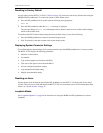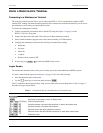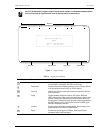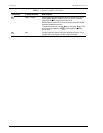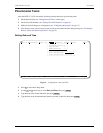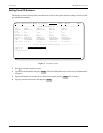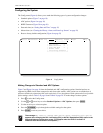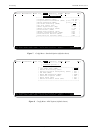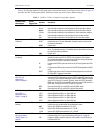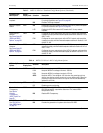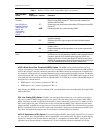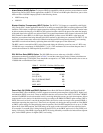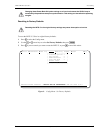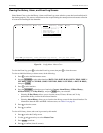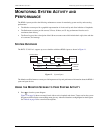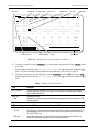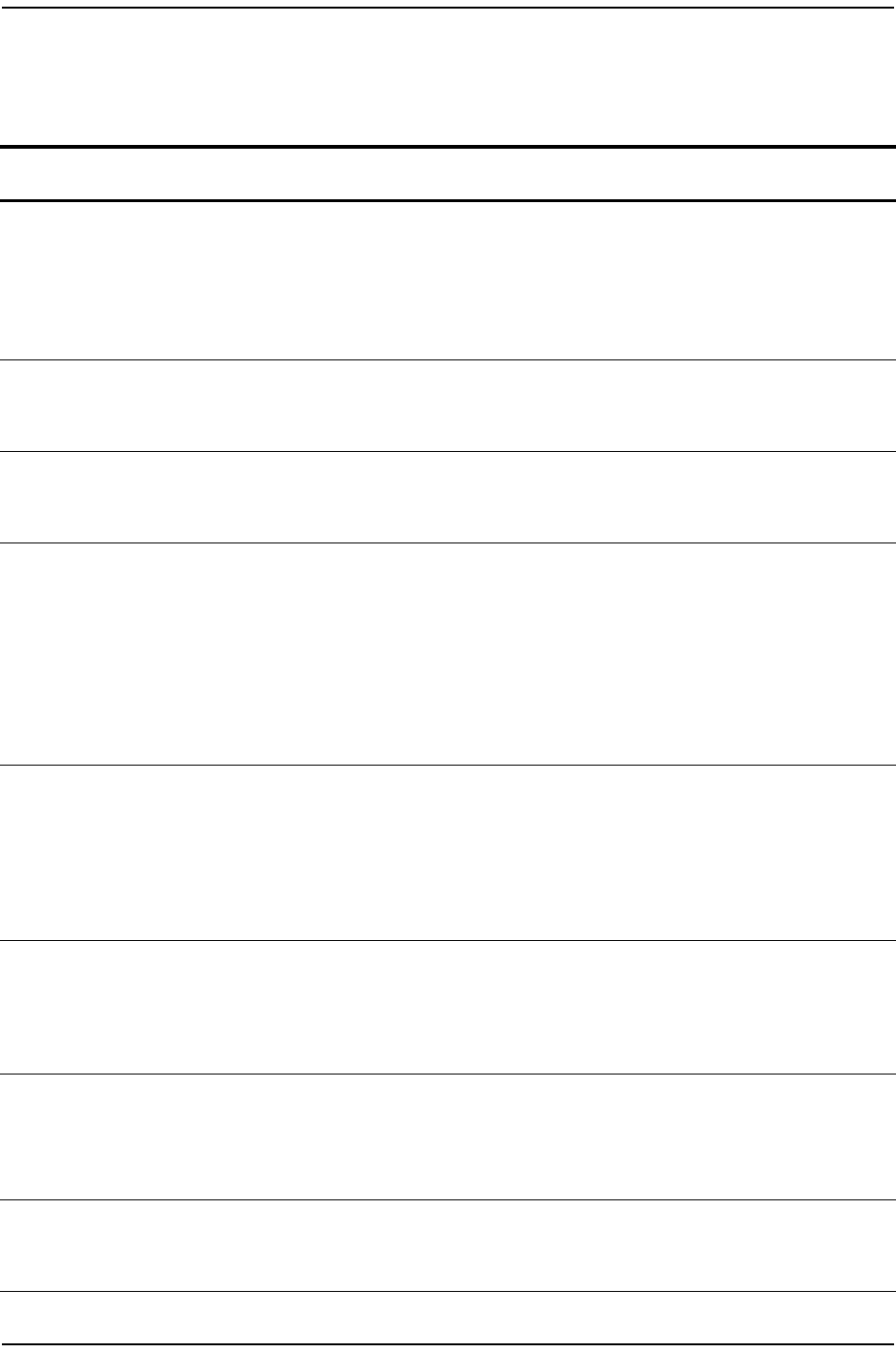
LTPH-UM-1031-03, Issue 3 Provisioning
H4TU-C-319 List 1 September 12, 2003 19
Table 5 describes the Standard Config menu options and lists their menu screen display codes. Table 6 on page 20
describes the ADC Config menu options. Selections in bold type are the factory default settings.
Table 5. H4TU-C-319 List 1 Standard Config Menu Options
Standard Config
Menu Options
Screen
Display Code
Selection Description
Loopback Timeout LBTO NONE Disables automatic time-out cancellation of all loopbacks.
20 min Sets automatic cancellation of all loopbacks to 20 minutes after initiation.
60 min Sets automatic cancellation of all loopbacks to 60 minutes after initiation.
120 min Sets automatic cancellation of all loopbacks to 120 minutes after initiation.
8 hr Sets automatic cancellation of all loopbacks to 8 hours after initiation.
24 hr Sets automatic cancellation of all loopbacks to 24 hours after initiation.
Loop Attenuation
Threshold
LATT 0 through
50 dB
Determines the maximum loop attenuation before an alarm is declared. Zero
disables the alarm. The loop attenuation threshold cannot be set from the
front-panel pushbuttons.
38 dB Default value.
Margin Threshold MARG 0 to 15 dB Determines the minimum allowable margin below which a system alarm can
occur. Zero disables the alarm. The Margin (Alarm) threshold cannot be set
from the front-panel pushbuttons.
4 dB Default value.
DS1 Frame
Formatting
FRMG AUTO Configures the HDSL4 system to operate in an auto-framing (AUTO) mode. It
detects and locks to both SF or ESF DS1 frame patterns. Line and path
performance parameters are maintained and displayed. Unframed payloads
cause the ES-P and SES-P counters to increment.
SF Configures the HDSL4 system to search for the SF framing pattern at its DS1
input.
ESF Configures the HDSL4 system to search for the ESF framing pattern at its DS1
input.
UNFR Configures the same as AUTO except unframed payloads do not cause the
ES-P and SES-P counters to increment.
DS1 Line Coding
See “DS1 Line
Coding (DS1)
Option” on page 21.
DS1 AUTO The H4TU-C and H4TU-R monitor the incoming DS1 bit streams for the B8ZS
code. If the H4TU-R detects this code, the H4TU-C enters B8ZS output mode.
The H4TU-C reverts back to AMI output mode if no B8ZS codes are received
at the H4TU-R input for 5 seconds. Similarly, when the H4TU-C detects the
B8ZS code, the H4TU-R enters the B8ZS mode and returns to AMI mode if no
B8ZS code is received at the H4TU-C input for 5 seconds.
B8ZS Places both the H4TU-C and H4TU-R into their B8ZS modes.
AMI Places both the H4TU-C and H4TU-R into their AMI modes.
H4TU-C Equalization EQL 0 ft Sets the Equalizer to DSX-1 for 0 to 132 feet.
See “H4TU-C
Equalization (EQL)
Option.” on page 21.
133 ft Sets the Equalizer to DSX-1 for 133 to 265 feet.
266 ft Sets the Equalizer to DSX-1 for 266 to 398 feet.
399 ft Sets the Equalizer to DSX-1 for 399 to 532 feet.
533 ft Sets the Equalizer to DSX-1 for 533 to 655 feet.
H4TU-R Line
Buildout
RLBO Sets the DS1 receive level output toward the Customer Interface (CI). Line
buildout can only be set through the maintenance screens.
0 dB Sets the DS1 RLBO level toward the CI to 0 dB.
-7.5 dB Sets the DS1 RLBO level toward the CI to -7.5 dB.
-15 dB Sets the DS1 RLBO level toward the CI to -15.0 dB.
Alarm Pattern
See “Alarm Pattern
(ALMP) Option.” on
page 22.
ALMP AIS Enables the HDSL4 system to output an AIS payload at its DS1 ports for
LOSW and LOS DS1. For priority resolution, see Figure 27 on page 45.
LOS Enables the HDSL4 system to output an LOS condition at its DS1 ports for
LOSW and LOS DS1.
Continued



